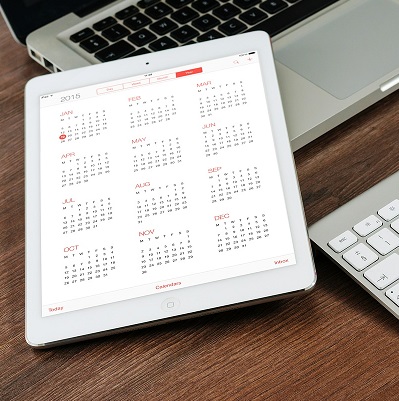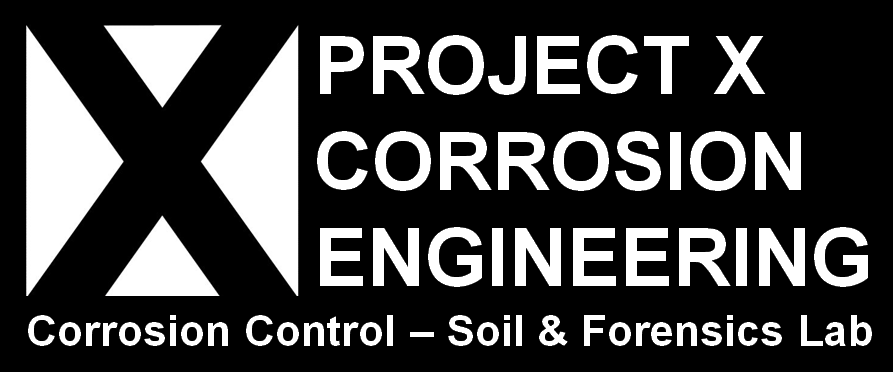Lab Rates

Soil Corrosivity Lab & Field Services by Corrosion Engineers
Our mission remains the same. Average 3-day turn-around-time on analysis and report. We understand your project needs to keep moving.
- To provide accurate scientific analysis of your samples within a prompt timely manner,
- To have an open door of communication so you will feel as if we are your in-house corrosion and thermal analysis department.
- A corrosion & thermal department led by a licensed professional engineer, with NACE/AMPP corrosion credentials, Materials Science & Mechanical Engineering degrees and years of seminar involvement, construction defect litigation & failure analysis investigations who knows firsthand how to keep you out of trouble. Our professional network of partners and colleagues are at your service as your corrosion toolbox when you need it.
Our most popular packages are:
$190 FULL Corrosion Series: pH, Min-Resistivity, water-soluble sulfate, chloride, ammonia, nitrate, sulfide, and redox potential; Provides all data needed to evaluate corrosion risk to dissimilar metal connections, carbon steel, ductile iron, stainless steel, copper, brass, aluminum, and concrete.
$150 Caltrans GeoQUAD: pH, Min-Resistivity, water-soluble Sulfate, & Chloride Data to evaluate corrosion risk to dissimilar metal connections, concrete and steel, little else. Warning: Caltrans guidelines are mainly concerned with steel and concrete roads. If your site also has copper water lines, copper electrical grounding, aluminum conduits, or brass fittings, you desire FULL CORROSION SERIES.
$50 Sulfate and Chloride: Requests for “Sulfate Only” will always have Chloride data too because chlorides are what will cause steel in concrete to corrode. You do not want to be surprised by chlorides at your building site.
$50 A la carte tests such as Sulfide only or pH only will be $50. We will not require any minimum orders as always.
$625 Thermal Resistivity Dry-Out Curve based on 6 points. Averaging 3 day turnaround time.
$100 For Remolding soil samples to your provided Proctor Data
We appreciate your business and look forward to serving you in the future. We thank you for providing us the opportunity to be of service. We offer competitive prices with average 3 day Turn-Around-Time (TAT) on analysis and report. We understand your project needs to keep moving.
Discount for early payment: Terms 5% discount if paid in full within 30 days.
Requests for quotes and proposals requiring significant guidance and email discussions may incur an ODC % markup.
AWWA C105 10-point system Steel & Iron Package $190/soil sample
Samples are tested for Resistivity, pH, Sulfide, Redox to determine the AWWA C105 point with data presented in a letter report. We highly recommend always testing for chlorides as they are the greatest contributor to pitting corrosion (pin hole leaks) and if copper and brass will also be in the soil, one should also test ammonia and nitrates as those elements cause the greatest harm to copper alloys.
Recommendations for Collecting Representative Samples
The goal is to have a soil sample from the depth and location that the infrastructure will be installed. We recommend a 1/4 gallon soil sample per acre (Soda Can~ 400g) be tested with a minimum of 3 locations for small lots. Zip lock bags are great for collection. For residential developments, we recommend testing every 5th lot for corrosion series to avoid future construction defect surprises. If one lot pops up much more corrosive than all others, we would recommend collecting more samples from the lots surrounding the problem lot to determine if the peak is isolated to it.
If this is for evaluating corrosion towards piles, concrete, and underground utilities, then we need samples from depths of 1 foot (most important for piles and concrete), 3 foot (for underground utilities and grounding wires), and 10 ft (for piles, very expansive soils, sewage, vaults, and storm drains), and ground water table information. If using helical anchors, we want to collect soil samples from the depth of the bottom of the anchor. The goal is to have a soil sample from the depth and location that the infrastructure will be installed. With all of this information, we can be aware of the soil corrosivity at various strata for all materials thus providing the most accurate engineering information possible. For pipelines such as water mains, we recommend collecting soil samples from pipe depth at every 1,000 ft of pipe alignment or Wenner 4 Pin tests of 2, 5, 10, X …, (X+5) to depth of pipe spacings. A doctor doesn’t test a spot on your arm to test if the mole on your leg is dangerous. You sample where it matters.
Collecting water samples
Samples should be collected in sterile bottles. In a pinch, buy a distilled water bottle, empty the bottle, rinse with a little water that is to be collected, then use for water collection. The sample should be shipped in a cooler and tested as soon as possible.
Conclusion
At Project X Corrosion Engineering, we specialize in testing soil and water corrosivity, providing corrosion control recommendations, investigating causes of corrosion, building inspection, cathodic protection design, corrosion control, and failure analysis. We help clients determine why they have a corrosion problem in the first place and what they can do to avoid corrosion problems in the future. We do not sell products or perform construction. We provide unbiased recommendations requiring the least amount of maintenance and cost. Customer service and reasonable turn around times are our priority.
Doing your corrosion homework can save you expensive headaches in the future. Digging up a water main pipe leak in grass plus repair typically costs $15,000. You can imagine what it costs to fix slabs, corroding rebar in slabs, or difficult access infrastructure such as a street intersection.
Our lab rates are online to help you build your proposal. https://projectxcorrosion.com/lab-rates/
Do not hesitate to call us for any questions.
A LA CARTE TESTING FEES.
Click here to download printer friendly Lab Rates.
Method Parameter Cost SM 2310 B Acidity (Total as CaCO3) $50 ASTM C641 Iron Staining Aggregate Materials Tests $75 SM 2310 B Acidity (Total as CaCO3) $50 SM 2320 B Bicarbonate (Total as CaCO3) $50 SM 2320 B Alkalinity (Total as CaCO3) [Water-Soluble] $50 SM 4500-NH3 Ammonia – Nessler (NH3-N) [Water-Soluble] $50 HACH 830 Ammonia – Salicylate (NH3-N) [Water-Soluble] $50 ASTM D512B, ASTM D4327, EPA 300 Chloride (CL–) [Water-Soluble] $50 AASHTO T291, ASTM D4327, EPA 300 Chloride (CL–) [Water-Soluble] $50 Caltrans CTM 422, ASTM D4327, EPA 300 Chloride (CL–) [Water-Soluble] $50 SM 2510 B Conductivity (mS/cm) $50 AASHTO T288 Resistivity – As Received & Minimum (ohm-cm) $80 Caltrans CTM 643 Resistivity – As Received & Minimum (ohm-cm) $80 ASTM D2216 Moisture Content & Density $50 SM 4500-NO3 Nitrate – Cadmium Reduc. (NO3-N) [Water-Soluble] $50 HACH 835 Nitrate – Dimethylphenol (NO3-N) [Water-Soluble] $50 ASTM G51 pH (H+) $50 AASHTO T289 pH (H+) $50 Caltrans CTM 643 pH (H+) $50 SM 2580B Redox Potential (mV) $50 ASTM G57 Resistivity – As Received & Saturated 4-pin (ohm-cm) More common for field tests, not lab. $80 ASTM G187 Resistivity – As Received & Saturated 2-Pin method (ohm-cm) more common for in lab soil box test. $80 ASTM D516, ASTM D4327, EPA 300 Sulfate (SO4) [Water-Soluble] $50 AASHTO T290, ASTM D4327, EPA 300 Sulfate (SO4) [Water-Soluble] $50 Caltrans CTM 417, ASTM D4327, EPA 300 Sulfate (SO4) [Water-Soluble] $50 SM 4500-S2, ASTM D4658 Sulfide (S) [Water-Soluble] $50 ASTM D5334 Thermal Resistivity Dry-Out Curve (Six Points). For Undisturbed samples; 6"(IEEE) or 8"(ASTM) height total needed, 2" minimum diameter. $625 ASTM D698, D2216, D2937 Soil remolding at Proctor Optimum Moisture and Maximum Dry Density $100 ASTM D1126, ASTM D6919, EPA 300 Calcium (Ca++) [Water-Soluble] $50 ASTM D1126 Total Hardness in Water (Mg + Ca) $50 ASTM D5907 Total Dissolved Solids (TDS) $50 SM 2320B Total Alkalinity $50 HACH 8033 Lead (Pb) $80 Combination of methods Langelier (LSI), Ryzner (RSI), & Puckorius (PSI) Scaling Index calculations $200 HACH 8030, ASTM D6919, EPA 300 Total Hardness in Water (Mg + Ca) $50 HACH 8030, ASTM D6919, EPA 300 Calcium (Ca++) [Water-Soluble] $50 IEEE 442-1981 Thermal Resistivity Dry-Out Curve (Six Points). For Undisturbed samples; 6"(IEEE) or 8"(ASTM) height total needed, 2" minimum diameter. $625 ASTM C1580 Sulfate in Soil [Water-Soluble] (FYI, most everyone uses AASHTO or CalTrans method) $200 ASTM C1218 Chloride in Concrete [Water-Soluble] via Ion-Selective Electrode (ISE) $200 SM 2540C Total Soluble/Dissolved Solids (TDS) $50 Calculated (atomic weight) Total Available Water-Soluble Sodium Sulfate (NA2SO4) [wt%] $50 UNI 9944:1992, BS EN 14630, ISO 1920-12:2015 Phenolphthalein Concrete Alkalinity Carbonation Depth Measurement on received Core Samples $100 DIN EN ISO 29581-2 &UNI 9944:1992, BS EN 14630, ISO 1920-12:2015 X-Ray Flourescence (XRF) Calcium Content of Concrete + Phenolphthalein Concrete Alkalinity Carbonation Depth Measurement on received Core Sample $200 ASTM C1202 Electrical Indication of Concrete's Ability to Resist Chloride Ion Penetration $100 Modified ASTM STP1123 Establishment of Alkalinity Neutralizing Capability (ANC) of water or soil sample 0.1 N NaOH $200 HACH-BART-SRB Sulfate Reducing Bacteria (MIC SRB) test 15 day incubation concentration measurement $100 ASTM D6919, EPA 300 Ammonium [Water-Soluble] $50 5-MIC Concentration Test (Microbiologically Induced Corrosion Sulfate Reducing Bacteria (SRB), Anaerobic Bacteria (ANA), Low Nutrient Bacteria (LNB), Iron Related Bacteria (IRB), Acid-Producing Bacteria (APB) [per mL] 15 day incubation period $500 ASTM E1621, ASTM E322, ASTM A751 X-Ray Fluorescence (XRF) alloy analysis $100/sample ASTM G59 Linear Polarization Resistance (LPR) $450/Sample ASTM D1125 Water Salinity $50 Failure Analysis Investigation Email for quote ASTM D6919, EPA 300, ASTM D4327 Sodium (Na) +Sulfate (SO4) +Total Available Water-Soluble Sodium Sulfate (NA2SO4) [wt%] $150 ASTM D1125 test method A Standard Test Methods for Electrical Conductivity and Resistivity of WATER Measurement of Static (Non-Flowing) Samples $50 ASTM G187 Two Pin Crushed Rock Electrical Resistivity test (As-Received, Minumum, and Saturated Surface Dry [SSD]). We do not recommend ASTM G57 4-pin methods for this as 3/4 inch rock would create larger than normal voids around those soil box pins. $100
Estimated quotes for:
- Soil sample collection, coating adhesion testing, isolation joint testing, or corrosion surveys, Southern California site visit cost depends on distance from site to Project X Corrosion office ($400/hr for field work team[negotiable]). We will go anywhere in the world.
- Soil Corrosivity and Corrosion Evaluation report with corrosion control recommendations and estimated corrosion rates of materials $1,500 per site or alignment. In order to provide the most thorough report, we require the $190 per soil sample test package consisting of pH, Minimum Resistivity, Sulfate, Chloride, Sulfide, Ammonia, Nitrate, REDOX.
- Wenner 4 pin soil resistivity tests (2, 5, 10, 25, 50 ft spans) Please email us for a quote as unique factors such as spacings, distance to site, travel, number of resistivity line crosses, site accessibility, drilling or no drilling required, etc, affect the cost. (Includes data report with map)
- Soil thermal resistivity tests $625 for six (6) points for Thermal Resistivity vs Moisture Content Dry-Out-Curve. $100 remolding charge if needed using client-specified optimal Moisture Content and Maximum Dry density. IEEE Method Minimum 6 inches tall, 2-inch diameter undisturbed sample rings.(includes data report)
All Prices are subject to change and revisited quarterly.
